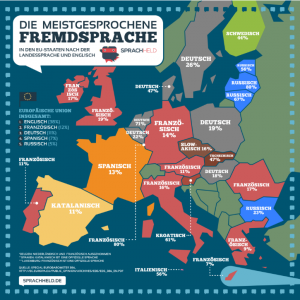1. Swiss Red Cross celebrates its 150th anniversary
Red Cross celebrates its 150th anniversary this year (2016). This organization was founded in 1866 in Bern. Its work during all these years was impressive. Their involvement is immense, especially today, thanks to their employees and 70 000 volunteers. Their main goal is helping people in need and achieving more humanity.
2. Good news for the pollution control in Germany
REWE, the second largest grocery supplier in Germany has banned plastic bags from its 130 stores. This means that 140 million plastic begs less per year are going to end in the garbage.

3. Dalai Lama on refugees
People who live better than other should help refugees, said Dalai Lama to Frankfurter Allgemeine Zeitung. On the other hand, there are too many of them, he explained. Europe, for example Germany, should not become an Arabic land. Too many refugees came to Europe which is making the situation very complicated. In his opinion, they should stay in Germany only for a while and then go back to their home lands and help build better societies there. Asked about the rising animosity towards the Islam, he replied that not all Muslims are bad and that there are bad people in all religions. Read the original interview in German here.

4. Future of the high education?
There are 64 million refugees in the world. Two young men from Berlin Vincent Zimmer (26) and Markus Kreissler (26) decided to help them. They have established KIRON – an online university for refugees. In order to study refugees don’t need any diplomas, asyl, home or money. All they need is a smartphone and internet. They need to know English, to pass a enrolling test and write an application letter. KIRON was established one year ago and it have managed to get 3 million euro and 1250 students are already in the program. The princip is simple: at the beginning the studies are conducted completely online. For this purpose KIRON has collected thousands of interactive online lectures (moocs) in English, some of them from Harvard or MIT. There are economics, computer sciences, engineering and social studies as courses of study. After 2 years, the students start studying on partner universities and finish their studies there. 14 universities in Germany are already on the board including the prestige university in Aachen. It is possible that this is the future of the higher education.

5. German people and work addiction
Anonymous alcoholics, gambling junkies, sex junkies, anorexic people, but “workaholics”? Do they really exist? Is that a joke? Well it’s not a joke. There are anonymous workaholics groups in almost every larger German city. In Berlin they come together on every Tuesday, in Munich and Stuttgart on Thursdays, in Freiburg on every first and third Wednesday in a month, in Cologne on every Saturday, in Frankfurt on every second Tuesday etc. There aren’t any official data about how many people in Germany suffer from work addiction, however there are some assumptions that there are between 200 000 and 300 000 of them. This addiction is not being considered as an illness. However, it can result with depressions, suicidal thoughts and panic attacks which should be treated clinically. The work addiction has all characteristics of any other addiction: workaholics ‘get high’ from work, lose control over work, feel crisis when they don’t work, need to increase the ‘dose’.
Workaholics work a lot, almost nonstop, sometimes 48 hours in a row, they work even over the night and sleep for 2 hours.
Also might be interesting: 16 ways to say money in German

6. Shocking pictures on packets of cigarettes
‘Smoking can be fatal for you, quit immediately’ (“Rauchen ist tödlich – hören Sie jetzt auf”) will appear on every packet of cigarettes in Austria starting from May 2016. Furthermore cigarettes and tobacco with different flavours and vitamins plus chewing tobacco will be prohibited. Shoking pictures should scare especially young people off from consuming cigarettes.

7. Vienna on the top of the list of the most desirable cities in the world for the 7th time in a row
Mercer, one of the world’s largest HR consultancy firms, releases annually a list of cities that provide the best quality of life. They looked at 450 cities and here is the result: one third of the most desirable cities in the world are from the German speaking countries, while Vienna took the first place on that list. The ranking: 1. Vienna, 2. Zurich, 4. Munich, 6. Dusseldorf, 7. Frankfurt, 8. Geneva, 13. Berlin, 14. Bern, 18. Hamburg, 25. Nuremberg and Stuttgart. London and New York didn’t make it to the list. For the whole ranking list and parameters click here.

8. Free WLAN hot-spots in churches
In 220 evangelic churches in the Berlin area people will be able to use free WLAN hot-spots, the so called “Godspots”. Until 2017 it will be available in all 3000 churches and other church buildings.

9. German women and entrepreneurship
It’s hard to believe that only 13% of German companies have been founded by women. There are some efforts to raise this number like the Fempreneur Summit which will take place on June 9th in Berlin.
10. Throw-away fashion
40 % of 5,2 billion pieces of clothing in German wardrobes are never or just seldom being worn. Every eighth person is wearing shoes less than one year. Almost no one repairs their clothing. It became important to follow fashion trends which is why 64 % of 1000 people who took part in this Greenpeace survey throw away many pieces of clothing. One half have never visited a tailor. More than one half of the people aged from 18 to 29 have never had their shoes repaired. 83 % have never exchanged and more than one half have never sold some piece of clothing . This is bad for both the environment and health because hundreds of chemicals which are being used for clothing producing are toxic.
11. Studying in Germany
German universities have changed during last 10 years like never before in their history. The number of students rose dramatically: 2,8 million young people are currently studying in 18 000 courses of study. In 2005 there were only 2 million of them, and back in 1980 only 1 million. Interested in scholarship possibilities? Click here.

12. (Over)producing of renewable energy
Germany is so “green” that it literally pays people to use the renewable energy. This happened on Sunday, May 8, 2016. Thanks to a sunny and windy day, at one point around 1pm the country’s solar, wind, hydro and biomass plants were supplying about 55 GW of the 63 GW being consumed, or 87%. Power prices actually went negative for several hours, meaning commercial customers were being paid to consume electricity.
13. Traffic lights at ground level
Using cell phones in traffic can be very dangerous. This is why the authorities in Augsburg (Bavaria) and Köln (Nordrhein-Westfalen) decided to install traffic lights at ground level. This should prevent that people who are staring at their cell phones step on the tram tracks while it’s red. One survey of pedestrians in six European capitals found that 17 per cent are glued to their screens while walking in the street, rising to a quarter among those aged between 25 and 35. This solution should save lives.

14. German beer gardens
You cannot imagine Germany without the so called “beer gardens”.
The oldest one (since 1813) is in “Augustiner Keller” (in Munich) and the largest one (8000 sitting places) is in “Hirschgarten” (also in Munich). There are over 100 beer gardens in Munich which is the largest number of beer gardens in whole Germany.
Click here to navigate to a photo gallery.

15. German job market
Until 2030 Germany will lack in 5 million workers. This applies to almost all occupations – from highly educated people to skilled and non-skilled workers.
Source: Prognos AG

















